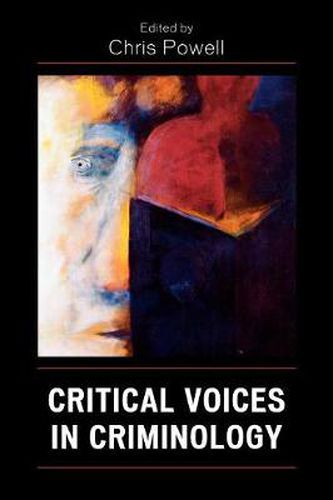Readings Newsletter
Become a Readings Member to make your shopping experience even easier.
Sign in or sign up for free!
You’re not far away from qualifying for FREE standard shipping within Australia
You’ve qualified for FREE standard shipping within Australia
The cart is loading…






Readers of criminological literature are presented with little more than thumbnail sketches as to the social characteristics or motivations of the authors. One learns their status, institutional location, and supposed credentials. Rarely are we presented with more detailed impressions of the authors as a combination of positivist assumptions and notions of professional competence seemingly render such information unimportant. However, increasing numbers of critical scholars are becoming aware of authorship as an issue; it matters who is addressing us. By taking these authors out of their methodological framework, Critical Voices in Criminology provides an opportunity for figures in and around critical criminology to discuss their own intellectual journeys into and within the discipline.
The book offers the opportunity for contributors to reflect on their work and consider what they did not say. It also affords them the opportunity to describe their own ‘channeling processes’ by indicating how the pursuance of some themes/topics ‘seemed’ appropriate, sensible, or realistic, while others appeared less so, whether they internalized these particular themes, or attempted to contest and/or replace them.
$9.00 standard shipping within Australia
FREE standard shipping within Australia for orders over $100.00
Express & International shipping calculated at checkout
Readers of criminological literature are presented with little more than thumbnail sketches as to the social characteristics or motivations of the authors. One learns their status, institutional location, and supposed credentials. Rarely are we presented with more detailed impressions of the authors as a combination of positivist assumptions and notions of professional competence seemingly render such information unimportant. However, increasing numbers of critical scholars are becoming aware of authorship as an issue; it matters who is addressing us. By taking these authors out of their methodological framework, Critical Voices in Criminology provides an opportunity for figures in and around critical criminology to discuss their own intellectual journeys into and within the discipline.
The book offers the opportunity for contributors to reflect on their work and consider what they did not say. It also affords them the opportunity to describe their own ‘channeling processes’ by indicating how the pursuance of some themes/topics ‘seemed’ appropriate, sensible, or realistic, while others appeared less so, whether they internalized these particular themes, or attempted to contest and/or replace them.